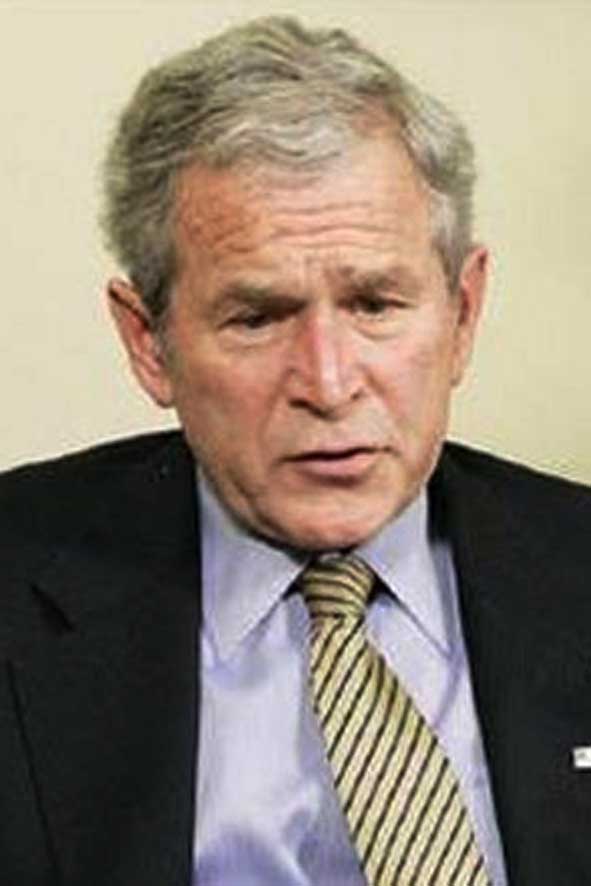World leaders edged closer to an agreement Saturday that would flag risky investing and regulatory weak spots, with President George W. Bush welcoming the progress at an emergency economic summit, Reuters reported.
Nearly two dozen foreign leaders got down to work at the largest gathering of its kind in nearly a decade. A chief goal was charting a map to avoid future financial meltdowns like the one now imperiling the global economy. Leaders also sought to find ways to revive the economy, which has pushed up unemployment and shrunk savings.
Under the glare of an intense political and public spotlight, the presidents and prime ministers needed to be careful not to let the talks become a blame game, which could further roil the fragile markets.
A thorny issue was whether all nations should pledge to enact government spending plans to stimulate their economies. It appeared likely the leaders would endorse the benefits of that approach, but stop short of a commitment for all participants to act at the same time.
To help prevent future crises, Bush and his counterparts prepared to endorse a plan for more openness in financial markets and an early warning system for problems such as the speculation frenzy that fed the U.S. housing bubble.
"I am pleased that we are discussing a way forward to make sure that such a crisis is unlikely to occur again," Bush said as discussed got under way. "Obviously, you know, this crisis has not ended. There's some progress being made, but there's still a lot more work to be done."
German Chancellor Angela Merkel told reporters that the leaders will achieve consensus on a plan "that includes almost 50 actions that have to be implemented by the end of March." She added, "The point is that all actors on the market, all products and all markets shall be really regulated and surveyed."
The plan would include measures aimed at making the global financial system more accountable to investors and more transparent to regulators, diplomatic officials said.
It would improve international monitoring of markets and bolster rules governing how companies value their assets, a current weakness seen as partly responsible for the financial crisis at hand. The officials spoke on condition of anonymity because leaders had yet to agree on their final statement.
While the emerging plan would boost oversight of fragile financial markets, it would fall short of the sweeping set of tough new regulations some Europeans want.
"These are difficult talks," British Prime Minister Gordon Brown said. "I think it's obviously important to move people to decisions ... about what can be done." Brown has taken a lead in pushing for a global coordination of county-by-country economic aid plans.
The Bush administration, however, has reacted coolly to a second U.S. aid plan and opposes a bailout of the teetering U.S. auto industry. Democrats are pushing for aid to Detroit automakers amid reports that the biggest one, General Motors Corp., could be forced into bankruptcy by the end of next month.
A follow-up summit is envisioned for the spring, after Barack Obama becomes president.
A new "college of supervisors" of financial regulators from many nations was among the ideas expected in the leaders' final statement after the summit ended late Saturday.
The leaders of major industrialized powers, including Britain, Germany, France and Japan, were at the summit, as were the heads of developing countries such as China, India and Brazil.
As leaders arrived in Washington Friday, Bush expressed his opinion about the dangers of too much government intervention. Strict new regulation of financial companies or products, such as some European leaders have advocated, would crush the global economy instead of protect it, he said.
Critics blame lax oversight and failures by U.S. and other regulators to detect problems as prime reasons for the financial crisis.
The crisis broke out in the United States around August of last year. Mortgage investments soured with the housing market's collapse and the fallout quickly spread to other countries. Banks and other financial companies suffered huge losses and foreclosures skyrocketed. The troubles crimped auto and student loans and locked up lending for many consumers and businesses worldwide.
Although Obama stayed away from the summit, he designated two representatives - former Secretary of State Madeleine Albright and former Republican Rep. Jim Leach of Iowa - to meet with leaders on the sidelines.
Mexican President Felipe Calderon stressed to them that a return to protectionism would complicate economic recovery efforts, according to the Mexican leader's office. Albright and Leach saw the leaders of Argentina and South Korea on Friday and had talks scheduled with lower-level representatives from other nations Saturday.
Europeans hoped the summit would produce stronger measures to end practices that allow some financial institutions to evade regulation. They also urged government supervision for all major financial players, including credit ratings agencies or funds carrying high amounts of debt.






